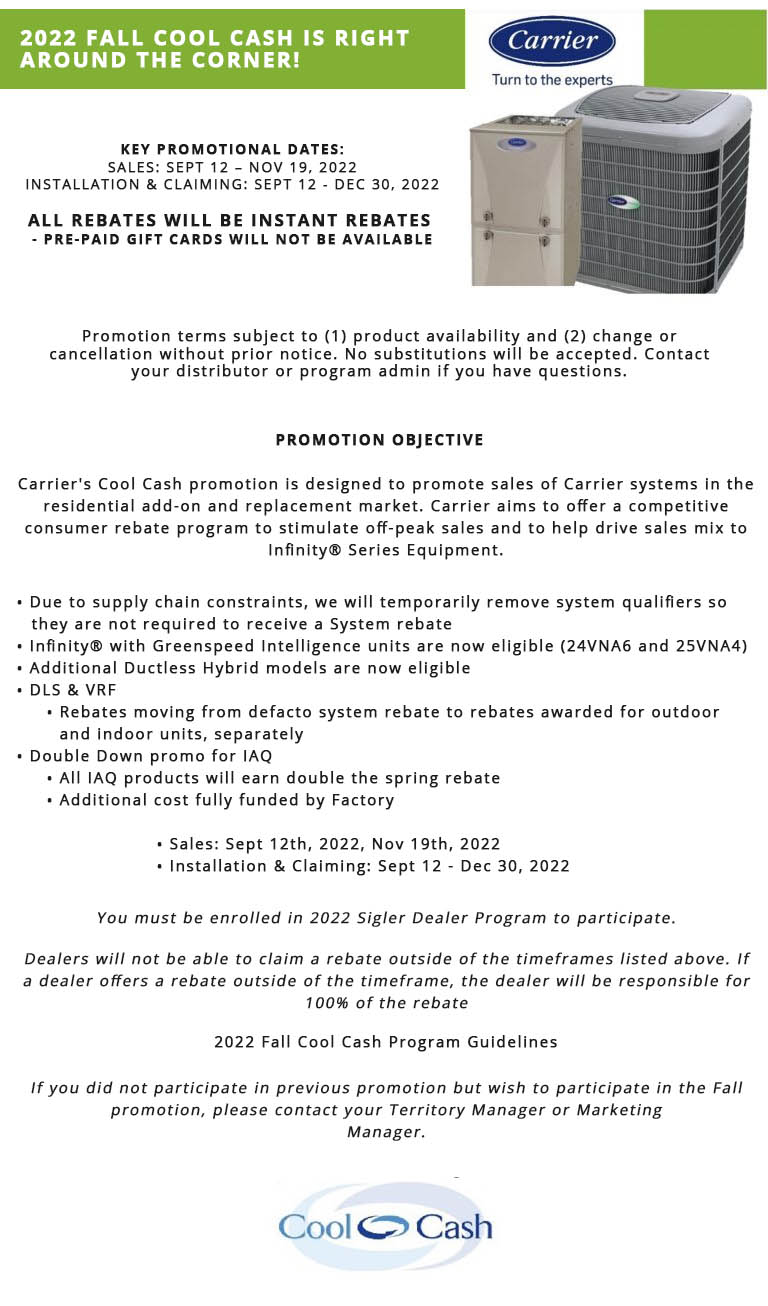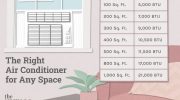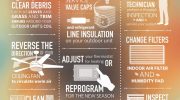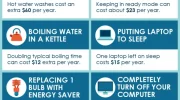
What You Should Do Before Contacting an HVAC Dealer
Before you reach out to an HVAC dealer, it’s important to understand what steps you should take to ensure a smooth and successful experience. By doing a little bit of research and preparation, you can save yourself time and money in the long run.
One of the first things you should do before contacting an HVAC dealer is to assess your needs. Take a look at your current heating and cooling system and determine if there are any specific problems or areas for improvement. This will help you communicate your needs clearly to the dealer and allow them to recommend the best solution for your home.
Next, it’s important to educate yourself about different HVAC systems and technologies. Understanding the basics of how heating and cooling systems work can help you make informed decisions and ask the right questions when talking to a dealer. Research different types of systems, energy efficiency ratings, and any available rebates or incentives.
Once you have a clear understanding of your needs and the available options, it’s time to research and compare HVAC dealers in your area. Look for reputable companies with experience and positive customer reviews. Take note of any certifications or qualifications they may have, as this can indicate their level of expertise and professionalism.
After narrowing down your choices, reach out to your top picks and request a consultation. During the consultation, ask questions about their experience, warranties, and pricing. A reputable dealer should be willing to provide you with a detailed quote and explain their recommendations in a way that you can understand.
Finally, before making a decision, it’s always a good idea to get a second opinion. Contact another HVAC dealer and compare their recommendations and pricing. This will give you a better understanding of the market and help you make an informed decision.
By following these five steps, you can ensure that you are well-prepared before contacting an HVAC dealer. This will help you make the best choice for your home and ensure a smooth and successful installation process.
Step 1: Assess Your HVAC Needs and Priorities
Before contacting an HVAC dealer, you should assess your HVAC needs and priorities. This will help you determine the type of HVAC system and services you require.
Here are some key considerations to keep in mind:
- Heating and Cooling Requirements: Evaluate your heating and cooling requirements to determine the appropriate capacity and system type. Consider the size of your space, insulation, and regional climate.
- Budget: Determine your budget for purchasing and installing an HVAC system. Consider the initial cost, long-term energy efficiency, and potential maintenance and repair expenses.
- Energy Efficiency: Consider the energy efficiency ratings of different HVAC systems. Look for Energy Star-certified products that will help you save energy and reduce utility bills.
- Zoning Needs: Determine if you require zoning capabilities in your HVAC system to control individual room temperatures and maximize comfort.
- Indoor Air Quality: Assess your indoor air quality needs and consider additional features like air purifiers, humidifiers, or dehumidifiers.
- Smart Technology: Decide if you want a smart HVAC system with features like programmable thermostats, remote access, and energy usage monitoring.
- Warranty and Maintenance: Look for HVAC systems with reliable warranty coverage and consider the maintenance requirements to ensure the longevity and efficiency of your system.
By thoroughly assessing your HVAC needs and priorities, you will be better prepared when contacting an HVAC dealer. This will help facilitate a productive and informed discussion about the best HVAC solutions for your specific requirements.
Step 2: Research Different Types of HVAC Systems
Before contacting an HVAC dealer, it is important to have a good understanding of the different types of HVAC systems available. Doing so will ensure you are well-informed and able to make an educated decision about what type of system is best for your needs.
When researching HVAC systems, there are several key factors to consider. These include:
- Heating and Cooling Needs: Determine what your heating and cooling needs are. Do you need a system that can handle both functions, or do you already have separate heating and cooling systems in place?
- Efficiency Ratings: Look into the efficiency ratings of different HVAC systems. Higher efficiency ratings typically indicate lower energy consumption and therefore lower utility bills.
- Size and Capacity: Consider the size and capacity of the HVAC system. It should be able to effectively heat and cool your home without being too large or too small for the space.
- Types of Systems: There are various types of HVAC systems to choose from, including central air conditioning systems, ductless mini-split systems, and heat pumps. Research the benefits and drawbacks of each type to determine which one best meets your needs.
- Maintenance and Service: Find out what kind of maintenance and service each type of HVAC system requires. Some may require more frequent maintenance or have more complex service needs.
Taking the time to research different types of HVAC systems will help you make an informed decision when it comes time to contact an HVAC dealer. It will also ensure that you are able to ask the right questions and have a productive conversation about what system is best for your home.
Step 3: Determine Your Budget for HVAC Installation or Replacement
Before contacting an HVAC dealer, it is important to determine your budget for the installation or replacement of your HVAC system. Knowing what you can afford will help you make informed decisions throughout the process.
Here are a few key things to consider when determining your budget:
- Research Costs: Take the time to research the average costs of HVAC installation or replacement in your area. This will give you a baseline understanding of what you can expect to pay.
- Evaluate Your Finances: Look at your personal finances to determine how much you can comfortably spend on your HVAC system. Consider your monthly budget, savings, and any financing options that may be available to you.
- Consider Long-Term Expenses: While it can be tempting to choose the cheapest option upfront, it is important to consider the long-term expenses associated with your HVAC system. Energy-efficient systems may have a higher upfront cost but can save you money on your energy bills in the long run.
- Get Multiple Quotes: Contact multiple HVAC dealers to get quotes for the installation or replacement of your HVAC system. This will help you compare prices and determine if any options fit within your budget.
- Factor in Maintenance Costs: Don’t forget to factor in the cost of regular maintenance for your HVAC system. This includes annual tune-ups and filter replacements. Budgeting for these ongoing expenses will help you avoid surprises down the road.
By determining your budget for HVAC installation or replacement, you will be better equipped to communicate with dealers and make decisions that align with your financial situation. Remember to consider long-term costs and schedule regular maintenance to ensure your HVAC system operates efficiently for years to come.
Step 4: Find Experienced and Reliable HVAC Dealers in Your Area
Before contacting an HVAC dealer, it is important to know what you should look for in a dealer. Finding an experienced and reliable dealer is crucial to ensuring that you receive the best service and products for your HVAC needs. Here are some steps to help you find the right HVAC dealer:
- Research: Take the time to research different HVAC dealers in your area. Look for dealers that have been in business for several years, as this demonstrates their experience and credibility. Additionally, read customer reviews and testimonials to get an idea of their reputation.
- Ask for referrals: Reach out to friends, family, or neighbors who have recently had HVAC work done. They can provide valuable insights and recommendations regarding their experience with different dealers.
- Check licensing and certifications: Ensure that the HVAC dealer you are considering is properly licensed and certified. This guarantees that they meet industry standards and regulations, and are knowledgeable about the latest technologies and practices.
- Compare multiple quotes: Contact at least three different HVAC dealers and request a quote for your specific needs. This allows you to compare prices and services offered, helping you make an informed decision.
- Review warranties and guarantees: Check if the HVAC dealer offers warranties or guarantees on their products and services. This provides you with added protection and peace of mind in case anything goes wrong after installation.
By following these steps, you can find experienced and reliable HVAC dealers in your area who will provide you with top-notch service and products. Taking the time to research and compare different options will ensure that you make the best choice for your HVAC needs.
Step 5: Request Quotes and Compare Offers from Different HVAC Dealers
Now that you have done your research and gathered all the necessary information about HVAC systems, it’s time to contact HVAC dealers and request quotes. This step is crucial in determining the cost and quality of the HVAC system you are looking for. Here are some things you should do before contacting a dealer:
- Make a list of HVAC dealers in your area: Before contacting anyone, it’s important to know who the available dealers are in your area. You can do this by doing a quick internet search or asking for recommendations from friends, family, or colleagues.
- Gather your requirements: Before reaching out to a dealer, you should have a clear understanding of your specific HVAC needs. Consider factors such as the size of your home, your budget, and any specific features or requirements you may have.
- Contact multiple dealers: It’s always a good idea to reach out to more than one HVAC dealer. This will allow you to compare prices, services, and offers, giving you a better idea of what is available in the market.
- Request quotes: When contacting HVAC dealers, be sure to request quotes for the specific system you are interested in. Provide them with all the relevant information about your requirements and ask for a detailed breakdown of the costs involved.
- Compare offers: Once you have received quotes from multiple dealers, take the time to compare them. Look for variations in price, warranties, installation services, and any additional perks or benefits that the dealer may offer. Consider all these factors before making a final decision.
Remember, choosing the right HVAC system and dealer is crucial for the comfort and efficiency of your home. Take your time, do your research, and make an informed decision based on the quotes and offers you receive.
Step 6: Read Reviews and Check References of HVAC Dealers
Before contacting an HVAC dealer, you should do thorough research to ensure you are choosing a reputable company that will provide quality service. Reading reviews and checking references can give you valuable insights into the experiences of past customers and help you make an informed decision.
1. Read Reviews: Check online review websites, such as Yelp, Google, or Angie’s List, to see what previous customers have to say about the HVAC dealers in your area. Look for dealers with consistently positive reviews and high ratings. Pay attention to common themes or recurring issues mentioned in the reviews.
2. Check References: Ask the HVAC dealer for references and contact information of past customers. Reach out to these references and inquire about their experience working with the dealer. Specifically, ask about the quality of the HVAC system installation or repairs, the professionalism of the technicians, and the overall satisfaction with the dealer’s service.
3. Evaluate the Feedback: Take note of both positive and negative feedback you receive from reviews and references. Look for patterns or consistent remarks that may affect your decision. Keep in mind that no company is perfect, so a few negative reviews or references should not immediately disqualify a dealer. However, if you notice a recurring issue or a significant number of negative reviews, it may be a red flag indicating poor service or quality.
4. Consider the Source: When reading reviews, consider the source and the credibility of the reviewer. Look for detailed, informative reviews from customers who have actually purchased or used the HVAC dealer’s services. Be cautious of overly positive or negative reviews that seem biased or exaggerated.
5. Ask for Recommendations: Reach out to friends, family, and neighbors who have recently had HVAC work done. Inquire about their experiences and ask if they can recommend any reputable HVAC dealers. Personal recommendations can be particularly valuable as they come from trusted sources.
By taking the time to read reviews and check references of HVAC dealers before contacting them, you can gather important information about their track record and reputation. This step will help you choose a reliable and trustworthy dealer who can meet your HVAC needs effectively.
Step 7: Verify Licensing and Certifications of HVAC Dealers
Before contacting an HVAC dealer, it is important to verify their licensing and certifications. This step ensures that you are working with a reputable and qualified professional who will provide you with the best service.
Licensing requirements for HVAC dealers vary by state, so it is crucial to research what licenses and certifications are required in your area. You can generally find this information on your state’s licensing board website or by contacting the board directly.
When verifying a dealer’s licensing, make sure they have the necessary licenses to operate legally in your area. This includes a contractor’s license, which demonstrates that they have met the appropriate standards and regulations set forth by the state. Additionally, check if they have any additional certifications or memberships to professional organizations.
In addition to licensing, certifications are another important factor to consider. HVAC certifications demonstrate a dealer’s expertise and commitment to staying up-to-date with industry standards and best practices. Look for certifications such as NATE (North American Technician Excellence) or EPA (Environmental Protection Agency) certification.
By verifying licensing and certifications, you can have peace of mind knowing that you are working with a qualified professional who is knowledgeable about HVAC systems and will provide you with high-quality service.
Step 8: Schedule In-Person Consultations with HVAC Dealers
Once you have done your research, gathered quotes, and carefully reviewed the information provided by HVAC dealers, it’s time to take the next step in the process: scheduling in-person consultations. This is an important step before making a final decision on which dealer to choose.
During the consultation, you will have the opportunity to meet the HVAC dealer face-to-face and discuss your specific needs and requirements. This is also a chance to ask any additional questions and get a better understanding of what the dealer can offer.
Here’s what you should consider and prepare before scheduling the consultation:
- Take note of any specific concerns or requirements you have regarding your HVAC system.
- Prepare a list of questions to ask the HVAC dealer. This could include questions about their experience, licenses and certifications, warranties, and maintenance plans.
- Be prepared to provide details about your home or building, such as its size, layout, and insulation.
- Take note of any previous HVAC issues or repairs that may be relevant.
- Consider your budget and any financial constraints you may have.
During the consultation, it’s important to ask the HVAC dealer about their expertise and experience in handling similar projects. You should also inquire about the specific HVAC system they recommend for your needs and why they believe it is the best option.
Be sure to take notes during the consultation and ask for any documentation or brochures that the dealer may have on hand. This will help you compare and evaluate the different options later on.
Remember to schedule consultations with multiple HVAC dealers to compare their recommendations, prices, and overall professionalism. This will help ensure that you make an informed decision and choose the dealer that best meets your needs.
By taking the time to schedule in-person consultations with HVAC dealers, you can gather valuable information and make a confident decision when it comes to selecting the right dealer for your HVAC needs.
Step 9: Ask About Warranties and Maintenance Plans
Before contacting an HVAC dealer, it’s important to understand what warranties and maintenance plans they offer. These can vary from dealer to dealer, so it’s crucial to do your research beforehand.

When considering warranties, you should ask the dealer about the length of the warranty and what it covers. Some warranties may only cover certain parts, while others may be more comprehensive. It’s important to know what is included so you can make an informed decision.
In addition to warranties, it’s also a good idea to inquire about maintenance plans. Regular maintenance is essential to keep your HVAC system running efficiently and to prevent any future issues. Maintenance plans can vary in terms of what they include, so be sure to ask about the specific services they offer.
Some common features of maintenance plans include routine inspections, filter changes, and priority service. These plans can save you time and money in the long run by catching small issues before they become major problems. They can also help extend the lifespan of your HVAC system.
During your conversation with the HVAC dealer, be sure to ask about any additional costs associated with warranties or maintenance plans. It’s important to have a clear understanding of what you’re getting and how much it will cost.
By asking about warranties and maintenance plans before contacting a dealer, you’ll have a better understanding of what to expect and can make a more informed decision. This will ensure that you choose the HVAC dealer that best meets your needs and provides the necessary support for your HVAC system.
Step 10: Evaluate Energy Efficiency and Environmental Considerations
When choosing an HVAC dealer, it is important to consider the energy efficiency and environmental impact of the systems they offer. Energy efficient systems can help you save on your energy bills and reduce your carbon footprint. Here are some things you should do before contacting a dealer:
- Research energy efficient HVAC systems: Before contacting a dealer, take the time to research different HVAC systems and their energy efficiency ratings. Look for systems with high SEER (Seasonal Energy Efficiency Ratio) ratings, as these indicate high energy efficiency. Additionally, consider systems that have earned the ENERGY STAR label, as these meet strict energy efficiency guidelines set by the U.S. Environmental Protection Agency.
- Evaluate the dealer’s knowledge: When contacting an HVAC dealer, ask questions about the energy efficiency of the systems they offer. A knowledgeable dealer should be able to provide information on the energy efficiency ratings of different systems and explain the benefits of choosing an energy efficient option.
- Consider the environmental impact: In addition to energy efficiency, it is important to consider the environmental impact of the HVAC systems. Look for systems that use environmentally friendly refrigerants, as these can help reduce greenhouse gas emissions and protect the ozone layer. Additionally, consider systems that have a minimal impact on indoor air quality, as poor air quality can have negative health effects.
- Ask about rebates and incentives: Many utility companies and government agencies offer rebates and incentives for installing energy efficient HVAC systems. Before contacting a dealer, research if there are any available incentives in your area. When speaking with the dealer, ask if they can help you navigate the rebate and incentive programs to ensure you take full advantage of any available savings.
- Compare lifecycle costs: When evaluating the energy efficiency of different systems, it is important to consider the overall lifecycle cost. While some systems may have a higher upfront cost, they may offer long-term savings through reduced energy consumption. Take into account factors such as installation costs, maintenance costs, and expected energy savings over the lifespan of the system.
By evaluating the energy efficiency and environmental considerations before contacting an HVAC dealer, you can make a more informed decision and choose a system that meets your needs while minimizing your impact on the environment.
Step 11: Consider Additional Features and Upgrades
Before contacting an HVAC dealer, it’s important to consider what additional features and upgrades you may want for your HVAC system. These features can improve the efficiency, performance, and comfort of your system, but they may also come at an additional cost. Here are a few things to think about:
- Smart Thermostats: Consider upgrading to a smart thermostat, which allows you to control your HVAC system from anywhere using your smartphone. These thermostats can learn your preferences and adjust the temperature accordingly, saving energy and money.
- Variable Speed Air Handler: A variable speed air handler can provide more precise control over the airflow in your home. This can result in better temperature and humidity control, as well as quieter operation.
- Zoning: If you have a large home or multiple floors, consider adding zoning capabilities to your HVAC system. This allows you to control the temperature in different areas or zones of your home independently, providing customized comfort and energy savings.
- Air Purification: If you or your family members have allergies or asthma, consider adding an air purification system to your HVAC system. These systems can remove allergens, pollutants, and odors from the air, improving indoor air quality.
- Humidifier/Dehumidifier: Depending on the climate where you live, you may want to consider adding a humidifier or dehumidifier to your HVAC system. These can help maintain the ideal humidity level in your home, improving comfort and preventing issues like dry skin or mold growth.
Talk to your HVAC dealer about these additional features and upgrades, and they can help you determine which ones make the most sense for your specific needs and budget.
Step 12: Understand the Installation Process and Timeline
Before contacting an HVAC dealer, you should have a clear understanding of what the installation process entails and the timeline associated with it. This will help you prepare and ensure a smooth installation experience.
Here are some things you should know about the installation process:
- Site evaluation: The HVAC dealer will visit your home to assess the layout, energy needs, and any specific requirements for your HVAC system.
- System design: Based on the evaluation, the HVAC dealer will design a system that meets your needs and complies with local regulations.
- Equipment selection: The dealer will help you choose the right HVAC equipment for your home, taking into consideration factors such as size, efficiency, and budget.
- Permits and approvals: Depending on your location, you may need to obtain permits or approvals before the installation can begin. The HVAC dealer can guide you through this process.
- Installation: Once all the necessary preparations are complete, the HVAC dealer will schedule the installation. This involves removing the old equipment (if applicable) and installing the new system.
The timeline for the installation process can vary depending on factors such as the complexity of the project, availability of equipment, and any necessary permits. It is important to discuss the timeline with the HVAC dealer to have a realistic expectation of when the installation will be completed.
During the installation, it is essential to communicate with the HVAC dealer and ask any questions you may have. They can provide updates on the progress and address any concerns or issues that arise.
By understanding the installation process and timeline, you can better prepare for the HVAC installation and ensure a successful outcome.
Step 13: Review and Compare Financing Options
Before contacting an HVAC dealer, it is important to understand and review the financing options available to you. HVAC systems can be a significant investment, and choosing the right financing option can help make the process more affordable and manageable.
Here are some key factors to consider when reviewing and comparing financing options:
- Interest Rates: Compare the interest rates offered by different lenders or financing companies. Lower interest rates can save you money over time.
- Loan Terms: Consider the length of the loan term and how it will impact your monthly payments. A longer term may result in lower monthly payments but could mean paying more in interest over time.
- Down Payment: Determine if a down payment is required and how much it will be. Some financing options may not require a down payment, while others may require a percentage of the total cost upfront.
- Repayment Options: Understand the repayment options available to you. Some financing options may offer flexible repayment plans, while others may require fixed monthly payments.
- Additional Fees: Review any additional fees associated with the financing option. This could include origination fees, processing fees, or early repayment penalties.
When comparing financing options, it is also important to consider your own financial situation and goals. Evaluate what you can comfortably afford in terms of monthly payments and how the financing option aligns with your long-term financial plans.
By reviewing and comparing financing options before contacting an HVAC dealer, you can make an informed decision that best suits your needs and budget.
Step 14: Check for Rebates or Tax Incentives for HVAC Upgrades
Before contacting an HVAC dealer, you should do some research to see if there are any rebates or tax incentives available for HVAC upgrades. These incentives can help offset the cost of upgrading your heating and cooling system, making it more affordable for you.
Rebates and tax incentives are often offered by local governments, utility companies, or manufacturers. They are designed to encourage homeowners to invest in energy-efficient HVAC systems and reduce their carbon footprint. Taking advantage of these incentives can not only save you money, but also contribute to the overall sustainability of our environment.
Here’s what you should do to check for rebates or tax incentives for HVAC upgrades:
- Research Local Programs: Start by researching what programs are available in your area. Check the websites of your local government, utility companies, and HVAC manufacturers for information on rebates and incentives.
- Review Eligibility Criteria: Make sure to review the eligibility criteria for each program. Some incentives may only apply to specific types of HVAC systems or certain energy-efficiency standards. Familiarize yourself with these requirements to determine if you qualify.
- Calculate Potential Savings: Once you have identified the programs you are eligible for, calculate the potential savings. Consider the amount of the rebate or incentive, as well as any additional savings on energy costs you may achieve by upgrading to a more efficient HVAC system.
- Document Required Information: Take note of any documentation or information you may need to provide when applying for the rebate or incentive. This could include proof of purchase, receipts, or energy efficiency ratings.
- Apply for Incentives: Finally, follow the application process outlined by the program to apply for the rebates or tax incentives. Be sure to submit all required documentation on time to maximize your chances of receiving the incentives.
Checking for rebates or tax incentives for HVAC upgrades is an important step that can help you save money while improving the efficiency of your home’s heating and cooling system. By taking the time to research and apply for these incentives, you can make your HVAC upgrade more affordable and environmentally friendly.
Step 15: Make a Final Decision and Sign the Contract with Your Chosen HVAC Dealer
Before contacting an HVAC dealer, it’s important to know what you should do once you have gathered all the necessary information and quotes. After thorough research and consideration, you will need to make a final decision and sign the contract with your chosen HVAC dealer.
Here are some steps you should follow:
- Review Your Options: Review all the quotes and options provided by different HVAC dealers. Consider factors such as price, reputation, warranty, customer reviews, and expertise to make an informed decision.
- Compare the Details: Compare the details of each quote, including the cost of the HVAC system, installation fees, warranty terms, and any additional services offered by the dealer. Pay close attention to the fine print to ensure there are no hidden costs or limitations.
- Consult with the Dealer: Reach out to your chosen HVAC dealer for any clarifications or questions you may have. Ask them to explain any technical terms or specifications that you don’t understand. This will help you make a more informed decision.
- Negotiate: If you feel that the price or terms can be negotiated, don’t hesitate to discuss it with your chosen HVAC dealer. They may be open to adjusting the price or offering additional services to win your business.
- Sign the Contract: Once you are satisfied with your chosen HVAC dealer and have reviewed all the details, it’s time to sign the contract. Read through the contract carefully, ensuring that all the agreed-upon terms and conditions are included. If there are any changes or modifications, request an updated contract before signing.
By following these steps, you can confidently make a final decision and sign the contract with your chosen HVAC dealer. This will ensure a smooth and satisfactory experience for both parties involved.
Step 16: Prepare Your Home for HVAC Installation or Replacement
Before contacting an HVAC dealer for installation or replacement, it’s important to take the necessary steps to prepare your home. By doing so, you can ensure a smooth and efficient installation process. Here’s what you need to do:
- Clear the Area: Before the HVAC dealer arrives, make sure to clear the area where the unit will be installed. Remove any furniture, rugs, or other items that may obstruct the installation process. This will help the technicians to work quickly and safely.
- Provide Access: Ensure that the technician has easy access to the installation site. Clear any pathways, remove obstacles, and unlock any gates or doors that may be in the way. This will save time and allow the technicians to focus on the installation.
- Disconnect Power: If you have an existing HVAC unit that needs to be replaced, make sure to disconnect the power supply before the technician arrives. This will prevent any accidents and ensure the safety of everyone involved.
- Remove Fragile Items: If there are any fragile items or valuable possessions in the vicinity of the installation site, it’s a good idea to remove them beforehand. This will prevent any accidental damage during the installation process.
- Protect the Surrounding Area: HVAC installation or replacement may involve some drilling or cutting. To protect the surrounding area, consider covering nearby furniture, electronics, or flooring with drop cloths or plastic sheets.
By following these steps, you can help ensure a smooth and successful HVAC installation or replacement. Taking the time to prepare your home beforehand will save you and the HVAC dealer time and effort, making the process as hassle-free as possible.
Step 17: Communicate and Coordinate with Your HVAC Dealer for a Smooth Installation Process
Before contacting an HVAC dealer, you should have already completed the previous steps outlined in this comprehensive guide. Once you have done so, it is time to reach out to your chosen HVAC dealer to discuss the installation process. Effective communication and coordination with your HVAC dealer are essential for ensuring a smooth and successful installation. Here are some important things you should do:
- Provide all necessary details: Share all relevant information about your home, including its size, layout, and any specific requirements you may have.
- Discuss timeline: Determine a suitable timeframe for the installation process. Consider factors such as availability of both parties and any scheduling constraints you may have.
- Confirm pricing and payment: Get a clear understanding of the cost of the HVAC system and installation, as well as the payment terms. Ensure that you are comfortable with the pricing and discuss any financing options that may be available.
- Review the installation plan: Go over the installation plan with your HVAC dealer. Make sure you understand the steps involved and ask any questions you may have. It’s important to be on the same page to avoid any misunderstandings during the installation process.
- Coordinate logistics: Discuss logistical details such as access to your home, parking for the HVAC technicians, and any special considerations that may need to be taken into account during the installation process.
Remember, effective communication and coordination with your HVAC dealer will help ensure a smooth installation process and a successful outcome. Be proactive in sharing information, asking questions, and addressing any concerns you may have. By working together, you can achieve a seamless installation of your new HVAC system.
Q&A:
What are the steps to take before contacting an HVAC dealer?
The steps to take before contacting an HVAC dealer include evaluating your current HVAC system, considering your needs and budget, researching reputable HVAC dealers, getting referrals from friends and family, and checking for available rebates and financing options.
Why is it important to evaluate your current HVAC system before contacting an HVAC dealer?
Evaluating your current HVAC system allows you to determine if it needs to be repaired or replaced. It also helps you provide accurate information to the HVAC dealer about your current setup, so they can better assist you.
What factors should be considered when choosing an HVAC dealer?
When choosing an HVAC dealer, it’s important to consider their reputation, experience, certifications, and licenses. You should also look for dealers who offer warranties, provide excellent customer service, and have positive reviews from past customers.
How can I find reputable HVAC dealers?
You can find reputable HVAC dealers by conducting online research, checking local business directories, reading customer reviews and ratings, asking for referrals from friends and family, and contacting professional organizations like the Air Conditioning Contractors of America (ACCA).
Are there any rebates or financing options available for HVAC systems?
Yes, there are often rebates and financing options available for HVAC systems. You can check with the HVAC dealer or visit websites of government agencies or energy companies to find out about any available incentives or financing programs.








